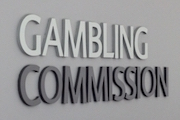The UK Gambling Commission is requesting evidence on the issue of gambling online with credit cards and improving player control measures on Category B gaming machines.

An invitation has been launched in which members of the public, gambling businesses and other stakeholders can provide their views, with the relevant information available through the Gambling Commission’s website.
Last year, the UKGC backed the principle that consumers should not gamble with money they do not have. Gambling with borrowed money is already well-established as a risk factor for harmful gambling.
Now it is seeking meaningful input to help determine if restrictions – potentially including an outright ban – are necessary to limit risks to consumers.
The other call for evidence gives an opportunity for gambling businesses to outline how they will meet the challenges set out in the UK Government’s Review of Gaming Machines and Social Responsibility Measures over the protections for players using FOBTs.
In April, the maximum stake on Category B machines (FOBTs) will be reduced from £100 to £2. Category B1 machines in casinos and Category B3 machines, sited in arcades, bingo halls and betting shops, offer maximum stakes of £5 and £2 respectively, but at up to eight times the speed of play of B2 games. The Commission said last year in its advice to government that it wanted to explore player protection options further. Those options include tracking play, using time and monetary limits and alerts, and communicating messages about gambling safely. The Commission also said it wants to hear about industry efforts to evaluate harm prevention measures.
Paul Hope, an executive director at the Gambling Commission, said: “We are exploring measures that could help reduce the risk of harm to consumers who use their credit cards to gamble online, and to those who play on all Category B machines. We want consumers, gambling firms and other interested parties to have their say and provide evidence that will help us make gambling safer.”

